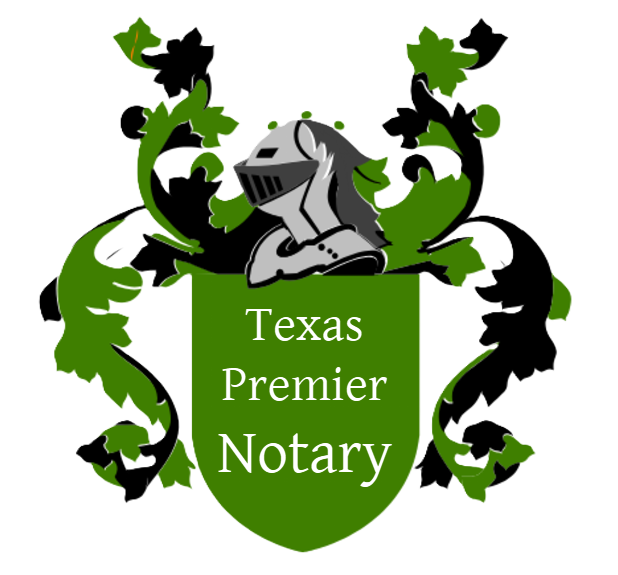Certified Notary Services Wherever You Are
Find clear answers to your notary questions for effortless and informed decisions.
What types of documents can Texas Premier Notary certify?
We notarize a wide range including affidavits, contracts, deeds, and powers of attorney.
Can a notary come to my office or meet at a place of business?
Yes, we offer mobile notary services at preferred location for convenience.
Are your notary services available for businesses?
Absolutely, we tailor services to meet both individual and corporate requirements.
How do I prepare for a notarization appointment?
Bring valid photo ID and the unsigned documents to ensure a smooth process.
Certified Notary Solutions Designed for You
Texas Premier Notary is committed to delivering personalized, accessible notary services that simplify your legal and contractual needs, driven by integrity and excellence.

Trusted Notary Services Tailored for Texas
UNDER THE TEXAS GOVERNMENT CODE
TITLE 4. EXECUTIVE BRANCH
SUBTITLE A. EXECUTIVE OFFICERS
CHAPTER 406. NOTARY PUBLIC; COMMISSIONER OF DEEDS
SUBCHAPTER A. NOTARY PUBLIC
The office of Notary Public is established under the by and under the authority of the Secretary of State.
The rules:
(1) may not require a person to complete more than two hours of education for appointment or two hours of continuing education for reappointment;
(2) must require that the secretary of state establish and offer education and continuing education courses and allow the secretary of state to charge a reasonable fee;
(3) must require that the education and continuing education course hours required for appointment or reappointment as a notary public may only be completed through a course established and offered by the secretary of state; and
Acts 1987, 70th Leg., ch. 147, Sec. 1, eff. Sept. 1, 1987.
Amended by:
Acts 2025, 89th Leg., R.S., Ch. 298 (S.B. 693), Sec. 6, eff. September 1, 2025.
Sec. 406.024. FEES CHARGED BY NOTARY PUBLIC. (a) A notary public or its employer may charge the following fees:
(1) for protesting a bill or note for nonacceptance or nonpayment, register and seal, a fee of $4;
(2) for each notice of protest, a fee of $1;
(3) for protesting in all other cases, a fee of $4;
(4) for certificate and seal to a protest, a fee of $4;
(5) for taking the acknowledgment or proof of a deed or other instrument in writing, for registration, including certificate and seal, a fee of $10 for the first signature and $1 for each additional signature;
(6) for administering an oath or affirmation with certificate and seal, a fee of $10;
(7) for a certificate under seal not otherwise provided for, a fee of $10;
(8) for a copy of a record or paper in the notary public’s office, a fee of $1 for each page;
(9) for taking the deposition of a witness, $1 for each 100 words;
(10) for swearing a witness to a deposition, certificate, seal, and other business connected with taking the deposition, a fee of $10; and
(11) for a notarial act not provided for, a fee of $10.
(b) A notary public may charge a fee only for an acknowledgment or official act under Subsection (a). The fee charged may not exceed the fee authorized by Subsection (a), as adjusted

